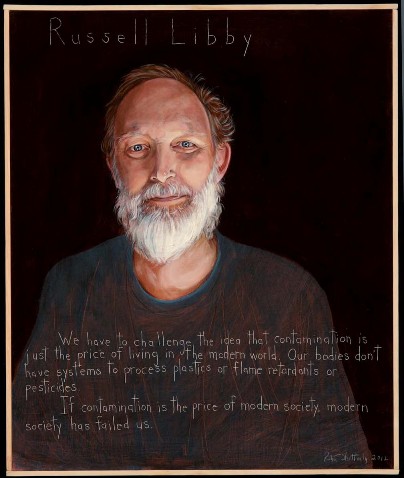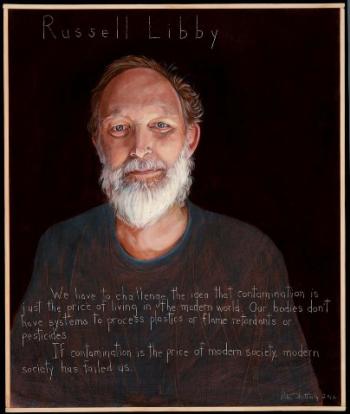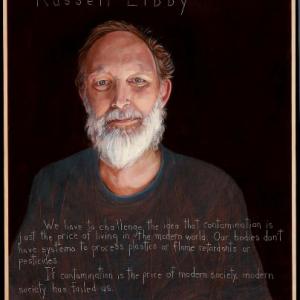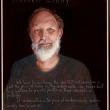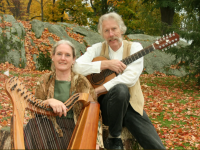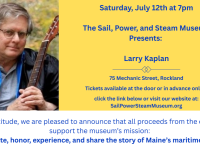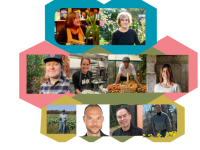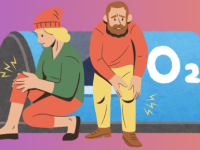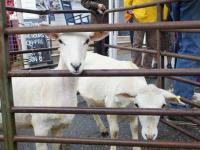Eva Murray: 'It's important'
A few days ago, four organic farmers from Maine were in Washington, D.C., to appear in court against chemical and biotech giant Monsanto. They, along with farmers from other states, are plaintiffs in a case having to do with a law that allows Monsanto to sue farmers for patent infringement should their genetically modified seed find its way onto a farmer's property, even if the farmer had nothing to do with it; for example, if it is blown in on the wind. According to the Bangor Daily News and the Sun Journal, a Monsanto representative has denied that a controversy exists, but the Federal Appeals Court judges weren't happy with the "non-answers" they felt they were getting from Monsanto.
Maine's Russell Libby would have been proud.
'Speaking truth to power is no small task; in fact, all through history it has always been the single bravest thing a man or woman can do.'
Libby (who from here on I shall call "Russell," as I knew him), for 17 years the executive director of the Maine Organic Farmers and Gardeners Association (MOFGA), died of cancer at a young age in December. On Sunday, Jan. 6, my husband, daughter and I attended a memorial for him at MOFGA's fairground and Educational Center in Unity. The large exhibition hall was filled to capacity with Mainers in work clothes, bearing plates of cookies and handmade cheeses, toddlers in tow, babies in arms. The words spoken that day were inspiring, the songs sung were moving, and the mood, though appropriately somber, was overwhelmingly one of affection and real respect. Russell's memorial service left us feeling, in a certain way, hopeful. Sadness at the loss of a friend was a big part of the occasion, obviously, but many of us left the gathering with the sense that we need go back to our hometowns and get to work.
Get to work doing what? Not everybody can or wants to be a farmer. That's okay; we don't have to do exactly what Russell did in order to pick up where he left off. We can get to work doing whatever it is we know how to do, but with increased determination to nurture what needs nurturing, to fight what needs fighting, and to courageously speak up when we really do know what we're talking about.
Russell Libby knew what he was talking about. He had credibility. To quote John Cross in the Bowdoin Daily Sun, "His knowledge of nature, sustainable practices of horticulture, animal husbandry, and woodlot management was encyclopedic." As a responsible grower, a community leader, an advocate for agricultural best practices, and a skilled speaker he earned the respect we gave him. He was a Bowdoin College economics major with a master's degree from the University of Maine and he was a worker on the land; he was not making believe he was anything.
As we stood in the hallway chatting after the more formal portion of the gathering had ended, a couple of us acknowledged that Russell's determination, his knowledge, and his genuine concern about these issues didn't just come out of the blue. Somewhere, back in time, somebody set an example. That must be true; it always is. He, then, set an example for so many of us; we remember, and work a bit harder because of him. According to the obituary, his fourth-grade teacher in Sorrento provided packets of vegetable seeds to students and this sparked a lifelong interest in agriculture. We're all better off for Russell's 4th-grade teacher.
Luckily for us, Russell didn't turn into a politician. He served on the select board and the school board in Mt. Vernon, he testified in the marble halls, he stood up before men in suits on behalf of many, he was articulate and conscious of his choice of words, but he still wrote poetry and cuddled babies and tended his apple trees day to day. A politician who speaks for farmers (or fishermen or anybody else) just doesn't have the same credibility as a farmer or a fisherman who speaks to politicians — or perhaps, for a short while, is willing to take on some local leadership position and see what good might come of it, and take that particular bruising (for a bruising there shall always be).
Speaking truth to power is no small task; in fact, all through history it has always been the single bravest thing a man or woman can do.
One truth he spoke repeatedly: "We have to challenge the idea that contamination is just the price of living in the modern world." Another wise reminder, this one read into the Congressional record and appearing anywhere we look for Russell's words as his basic principle: "Enough for everyone, always."
Russell wasn't a Pollyanna type, though, and he didn't make believe we could somehow go back in time to some mythic simpler day. He understood local economies. The reality is, "organic" might not be the one-size-fits-all touchstone we need, or rather, that one word might not answer all the questions. Decisions about our food shouldn't be reduced to a slogan. High quality food, raised or harvested with care and minimal adverse impact, will only be available if we vote with our pocketbooks and do business with our local producers.
Small scale local growers—even if not certified organic, for becoming such can be a lengthy and costly process and is not just a matter of will—require the support of a customer base. We as food purchasing consumers may even need to decide between purchasing from a huge California organic operation that trucks produce across the country (with all the petroleum that requires,) or from a local producer who uses best practices although he may not be able to be certified for reasons outside of his control (what agricultural methods the previous landowner may have used, for example).
At one point Russell did the math and figured out how much money would stay within the local economy of his own town if each household spent $10.00 per week on locally produced food and other products. It adds up; in fact, it may multiply. He spoke frequently about the concept of the "Ten Dollars a Week." If any of us is looking for some small way to make a difference, that one should be manageable.
There were small children at Russell's service, many of them occupied in a corner with some paper and crayons. The farmers of Maine hope that some of their children will want to continue; they hope that good agricultural land will be kept as such, and that the knowledge and skills –and the joys—of farming won't be lost on this generation. As a coastal resident I see a parallel with Maine's commercial fishermen. Maine's lobstermen have historically handed down their industry to their children, but it's getting harder to do that now with licensing limitations, debt, and uncertainty about the future of the fishery. We need to encourage our younger people, and respect this growing-up-in-the-stern-of-the-boat lifestyle, without effectively, by virtue of their upbringing, denying them a choice. That's a hard one. In any event, several who spoke at Russell's memorial mentioned how much he thought about children. "He loved holding babies," recalled one of the many who spoke. When we have conversations and attempt decisions about big abstractions like how to fish and farm, how to live better, how to make money, how to save the world, etc. we might well be advised to have a few little kids underfoot while we talk.
I am convinced that Russell would have offered the same gentle leadership — and just generally have given a damn as much — had his world been that of the commercial fisherman or, for that matter, the bricklayer or the lawyer or the man who repairs saxophones. I believe he'd have set his fine example in any trade, profession or lifestyle where decisions have to be made about ethics, about taking the long view, or about doing what both the neighborhood and the eyes of history will see as a good job.
Russell Libby served as an example to all who care about leaving things better than we found them, whether or not we ever till soil or shear sheep or pick apples—or testify before Congress or go to court. I'm sure he'd have done essentially the same things had he been a clamdigger (and I have seen those guys, in their sweatshirts, in the halls of the State House,) or a lobsterman (with his little kids in the stern of the boat learning the business,) or a groundfish harvester (perhaps selling fresh fish to subscriber customers in a Community Supported Fishery project).
Russell didn't say much during his last few days, as by all accounts his illness left him exhausted, but among his last words are two that have come to mind again and again since I heard them mentioned at his memorial:
"It's important."
Eva Murray lives on Matinicus.
More Industrial Arts
In the middle of the bay
Event Date
Address
United States

